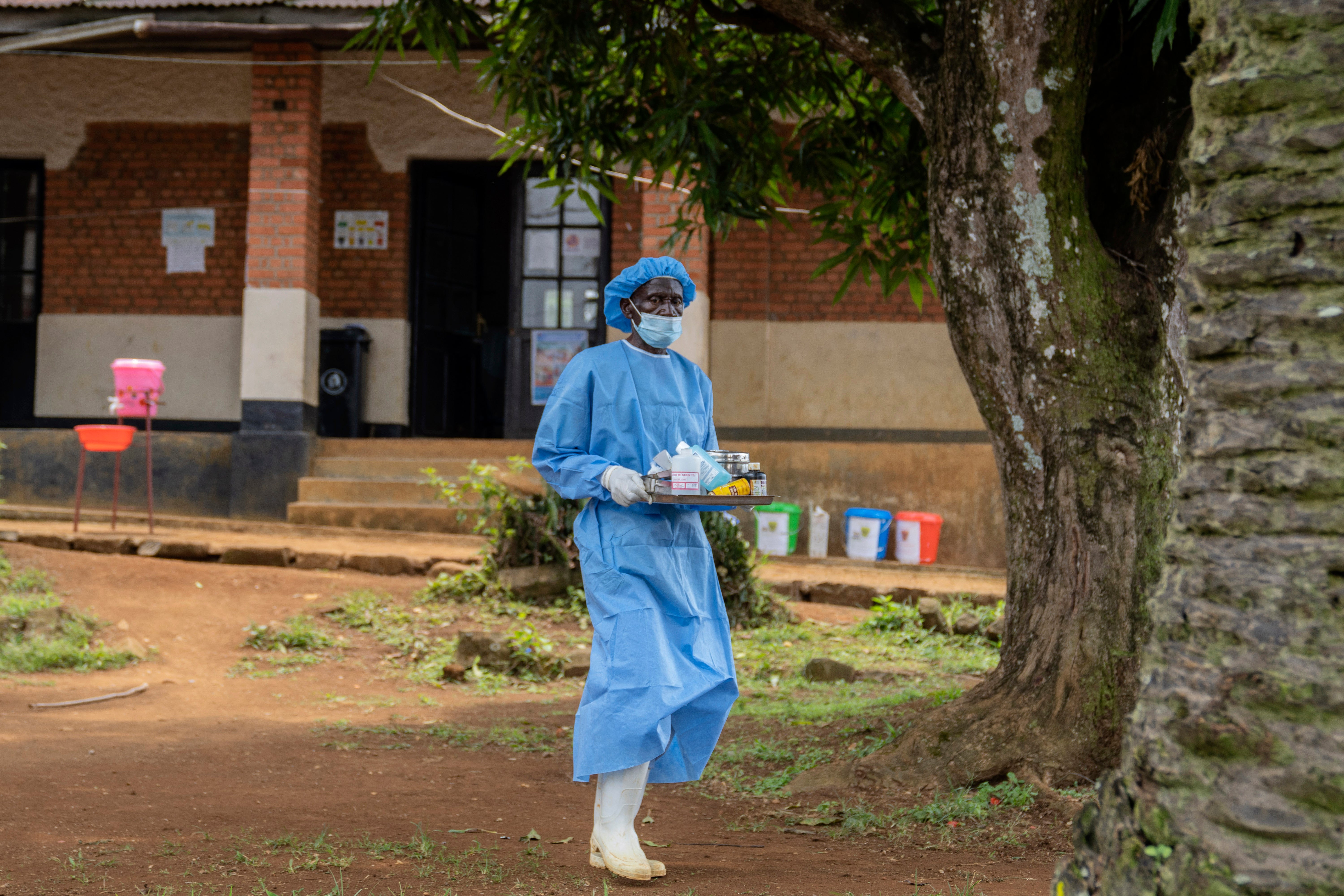The first 100,000 doses of mpox vaccine reach Congo. But it's a fraction of what is needed
Authorities in Congo say the first batch of mpox vaccine has arrived in Congo’s capital, three weeks after the World Health Organization declared mpox outbreaks in 12 African countries a global emergency

The first batch of mpox vaccine arrived in Congo's capital on Thursday, the country's authorities said, three weeks after the World Health Organization declared mpox outbreaks in 12 African countries a global emergency.
The 100,000 doses of the MVA-BN vaccine, manufactured by the Danish company Bavarian Nordic, have been donated by the European Union through HERA, the bloc's agency for health emergencies. Another 100,000 are expected to be delivered on Saturday, the Congolese authorities said.
UNICEF is going to be in charge of the vaccination campaign in the most impacted provinces, Congo’s Health Minister Roger Kamba told reporters after the delivery of the vaccine. But it remained unclear when the vaccination drive would begin.
About 380,000 doses of mpox vaccines have been promised by Western partners such as the European Union and the United States, Dr. Jean Kaseya, head of the Africa Centers for Disease Control and Prevention, told reporters last week. That is less than 15% of the 3 million doses authorities have said are needed to end the mpox outbreaks in Congo, the epicenter of the global health emergency.
Last week, the organization said there were more than 22,800 mpox cases and 622 deaths on the continent and that infections had jumped 200% in the last week. The majority of cases and deaths are in Congo, where the new mpox variant was first detected, and where most mpox infections are in children under 15.
Following the global mpox outbreak in 2022, wealthy countries quickly responded with vaccines and treatments from their stockpiles. However, only a few doses have reached Africa despite pleas from its governments, creating a huge inequity.
MVA-BN vaccine has already been used in Europe and the United States, the E.U. said, and it is authorized for use in adults. The European Medicines Agency is examining additional data to be able to administer it to children aged 12 to 17, which could happen at the end of the month.
215,000 doses were pledged and purchased for an undisclosed amount specifically to be donated to Congo, said Laurent Muschel, the Director-General of HERA.
The U.S. last week that it donated 10,000 doses of mpox vaccines to Nigeria, where the disease has been common. It is the first known donation to Africa since the current outbreaks. Nigeria has recorded 40 cases of the virus this year, according to Nigeria’s CDC.
Mpox, also known as monkeypox, had been spreading mostly undetected for years in Africa before the disease prompted the 2022 outbreak in more than 70 countries, Dr. Dimie Ogoina, the chair of WHO’s mpox emergency committee told reporters last month.
“What we are witnessing in Africa now is different from the global outbreak in 2022,” he said. While that outbreak was overwhelmingly focused in gay and bisexual men, mpox in Africa is now being spread via sexual transmission as well as through close contact among children, pregnant women and other vulnerable groups.
And while most people over 50 were likely vaccinated against smallpox — which may provide some protection against mpox — that is not the case for Africa’s mostly young population, who Ogoina said were mostly susceptible.
The Africa CDC said it is working on a unified response plan for the outbreaks which will be presented to African heads of state for consideration at a meeting in September.
——
The Associated Press receives financial support for global health and development coverage in Africa from the Gates Foundation. The AP is solely responsible for all content. Find AP’s standards for working with philanthropies, a list of supporters and funded coverage areas at AP.org
Bookmark popover
Removed from bookmarks